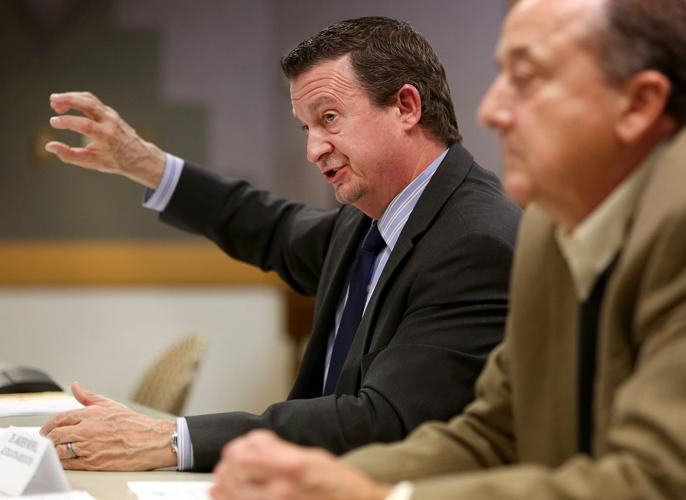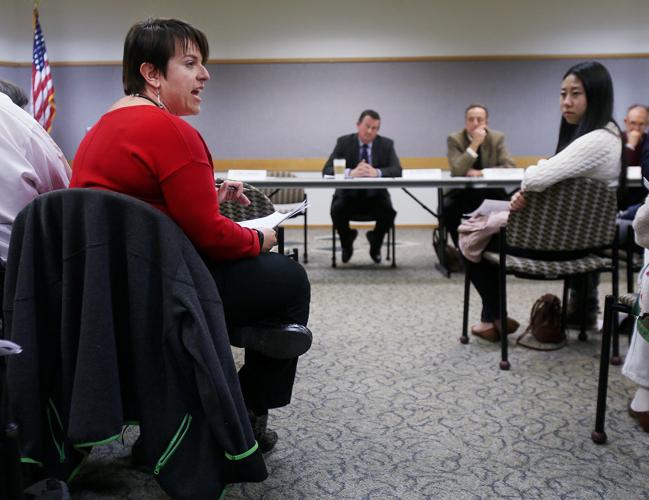The heads of education organizations involved in the lawsuit over the state’s failure to fund inflation costs in education funding said the proposed settlement to add $3.5 billion over 10 years is a “compromise.”
“It’s a first step, and it’s only a first step,” said Andrew Morrill, president of the Arizona Education Association, at a forum hosted by the Metropolitan Education Commission. “At least it’s a step in the right direction.”
Although it’s not a perfect solution, the alternative is another three to four years in litigation and a “giant black hole of doubt and uncertainty,” he said.
Arizona Education Association is one of the plaintiffs, along with five school districts and other education groups, who sued the state in 2010 after the state failed to adjust the base level per-pupil funding according to inflation as required by a 2000 voter-approved proposition.
After a lengthy court battle that lasted more than five years, state Republicans proposed a plan, which Gov. Doug Ducey signed in late October, to settle the lawsuit. Voters must now decide in a special election in May next year.
On top of the $3.5 billion, which school officials argue is only a fraction of what is actually due, the state would also pay $50 million annually in the first five years and $75 million annually for five years after that in money owed to schools.
A chunk of the money this plan would give schools would come from the state’s land trust. The settlement would allow for the state to draw 6.9 percent of the land trust for education funding for 10 years.
Even after the 10 years, the proposition would ensure constitutional protection for funding inflation adjustments, said Timothy Ogle, executive director of the Arizona School Boards Association.
State lawmakers have that time to figure out an alternative funding source, he said.
The inflation adjustments would be constitutionally protected except in cases of “triggers,” such as a recession or when education funding reaches 49 percent of the state’s general fund, he said. Inflation adjustment levels would compile each year during the trigger and reset when it resumes.
Both Morrill and Ogle said the plaintiffs had to give some to get some. The plan does not solve all of the funding problems that Arizona is facing.
“This resolves one piece of the funding formula,” Ogle said. “Now we talk about what’s next.”
The plaintiffs had to push to have no strings attached to the money given to schools, he said. The plan allows for local governing board control of how those funds would be used at the district level without state mandates.
Funding for Arizona’s schools is at the mercy of the state Legislature, said Dan Ireland, a middle school social-studies teacher for the Tucson Unified School District and vice president of the Tucson Education Association who attended the forum.
“That doesn’t go away whether you vote yes or no,” he said.
Speaking in favor of the settlement, he said his students need real resources now.
“I want money for them,” he said. “I want them to have good things in their schools.”
The Metropolitan Education Commission, which hosted the event, previously wrote a letter opposing the Legislature’s plan for funding schools.
Commissioners had concerns about the triggers that would suspend inflation funding, said June Webb-Vignery, the commission’s president.
The commission was going to bring a resolution to the Tucson City Council but decided to table it after hearing from school officials about financial hardship, she said.
The new proposition “does not silence the education funding conversation,” Morrill said. “There is not a single court case that will solve every education funding shortfall.”







